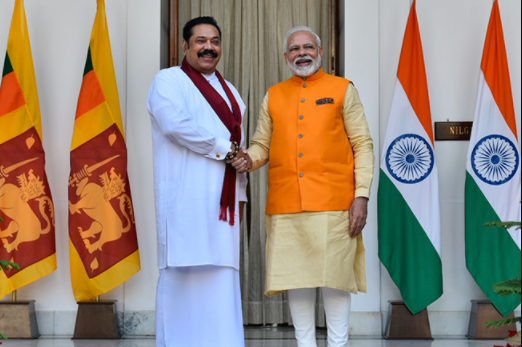New Delhi remains caught between an insensitive Colombo and an angry Chennai. India’s classic dilemma on Sri Lanka is playing out again
The Tamil question in Sri Lanka has posed an almost intractable dilemma for Indian foreign policy for decades. During the three-decade long civil war between Colombo and the Liberation Tigers of Tamil Eelam (LTTE), New Delhi moved from covert support to Tamil militants in the early 1980s to sending a peacekeeping force in the late 1980s to taking a strong position against LTTE in the 1990s after it assassinated former Prime Minister Rajiv Gandhi. It finally, quietly, supported Mahinda Rajapaksa’s final offensive against LTTE in 2009 — quietly, because New Delhi did not want to alienate the Tamil street at home. But this support was based on the expectation that once it defeated terrorism, Sri Lanka would be more sensitive to both Tamil aspirations and India’s strategic interests.
To buy our online courses: Click Here
Over the past decade, both assumptions have been tested. Under Mr. Rajapaksa’s earlier term, the military victory translated into institutionalized Sinhalese chauvinism, and the promise of devolution to Tamil minorities in the north and the east remained unmet. The fact that the Sri Lankan forces had allegedly committed mass human rights violations only led to further Tamil alienation. There were sporadic attempts during the Maithripala Sirisena-Ranil Wickremesinghe rule to address Tamil discontent — but since they were insecure about the Sinhala vote consolidating behind Mr. Rajapaksa, they did not deliver justice.
Read More: Roadworthiness, not vintage, for scrapping
Mr. Rajapaksa returned anyway, and has neither addressed war time atrocities nor given a sense of political belonging to Tamils. New Delhi’s second assumption — of a friendly Colombo — hasn’t translated to reality either. While the Rajapaksa regime makes the right noises, its revocation of a port contract to India (and Japan) in the island’s east, even as it continues to deepen ties with China, including giving it projects in the north, has shown that Colombo is not a strategically reliable partner.
Sri Lanka’s continued ethnic exclusivism internally (which has repercussions in Tamil Nadu, a state about to go to polls), and shift towards China externally have led India to abstain from a vote at a top UN human rights body asking Sri Lanka to do more. But the move has neither pleased Colombo, which wanted India to vote against the resolution, nor Tamil Nadu’s parties, which wanted India to vote for the resolution. Between an insensitive Colombo and an angry Chennai, New Delhi’s classic dilemma on Sri Lanka is playing out again.




